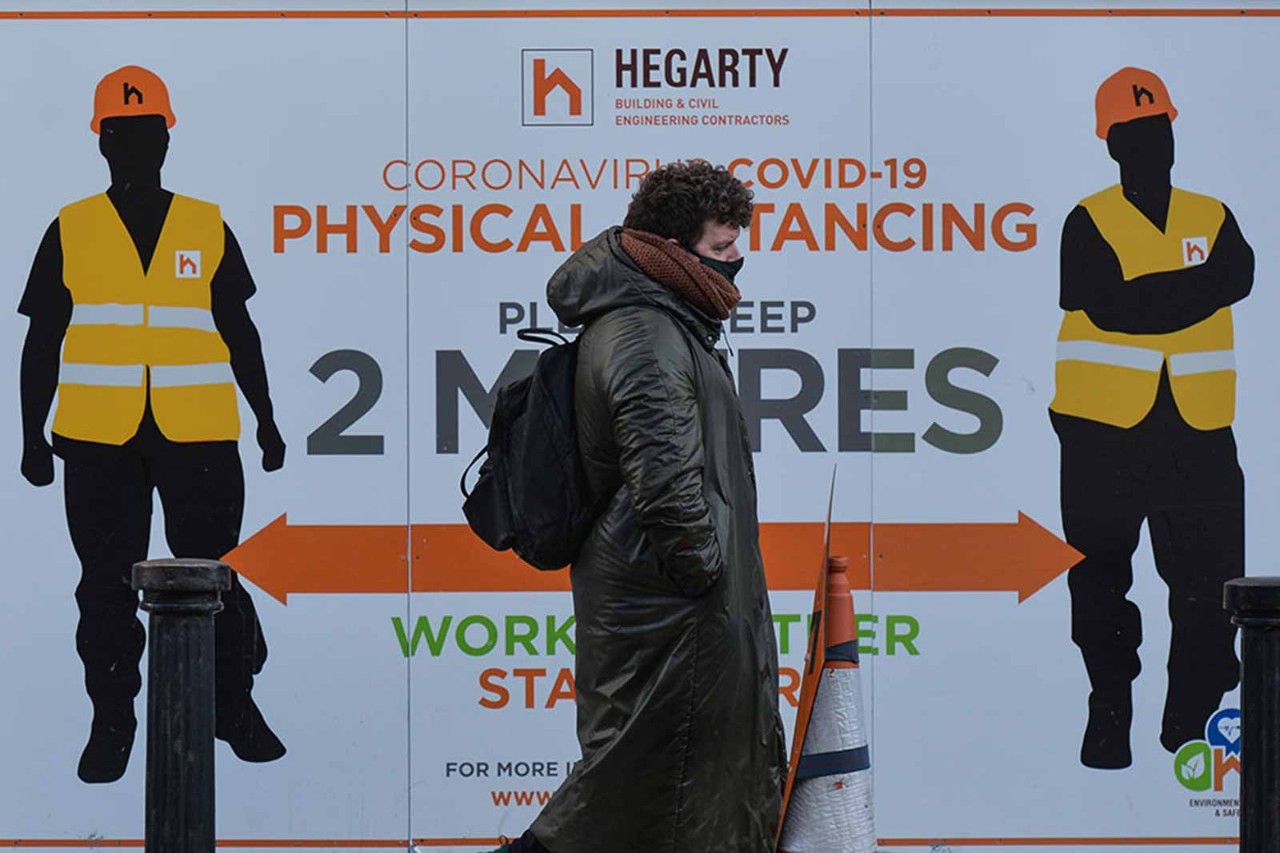
PAYE taxpayers
Preliminary end-of-year statements for 2020 for approximately 2.3 million PAYE taxpayers went live on Revenue’s myAccount service on 15 January. These attracted great interest as they included preliminary calculations of tax owed by employees who received wage subsidies under the Temporary Wage Support Scheme (TWSS) and the Covid-19 Pandemic Unemployment Payment scheme (COVID-PUP).
In advance of the release, Revenue published provisional statistics on the levels of under and overpaid tax. These allayed some concerns that individuals who received payments would be faced with very large tax bills, as these payments were not taxed at source.
Revenue’s figures show that of the PAYE taxpayers who received one or more of the wage supports during 2020, about 47% are either due a refund or have no additional liability; a further 23% have an additional tax liability of less than €500; and a further 15% have an additional tax liability of between €500 and €1,000.
Revenue has emphasised that underpaid tax does not have to be paid immediately. The tax can be collected over four years from January 2022, interest-free, and through an adjustment to the individual’s tax credits.
Revenue’s figures also show that more than 200,000 PAYE taxpayers with underpayments were not in receipt of any wage supports in 2020 and outlined reasons why this could occur – for example, if there was a change in an employee’s circumstances or the employer did not use the latest Revenue Payroll Notification when running the payroll. These taxpayers can also choose to have the underpaid tax collected for up to four years from 2022.
In overall terms, over 80% of all PAYE taxpayers have a preliminary tax position that is either balanced, overpaid or underpaid by less than €200.
Revenue’s main advice to PAYE taxpayers logging in to myAccount to check their tax position is to:
- Check the accuracy of the information provided. Employees who received TWSS payments can view their records via myAccount. TWSS amounts were also required to be included on the employee’s payslip. If the information displayed is incorrect, the employee should clarify the matter with their employer in the first instance.
- Bear in mind that the tax position displayed is a provisional calculation. Taxpayers should submit an income tax return to determine their true position after claiming any appropriate tax credits, expenses or including additional income for 2020. The online return is pre-loaded with the information Revenue has on record to make it easier to complete.
- If a taxpayer has underpaid tax, it does not need to be paid immediately. It can be collected in small amounts over four years, starting next year.
- If a taxpayer is due a refund, it is important to ensure a nominated bank account for tax refunds has been notified to Revenue. These details can be provided securely to Revenue via myAccount.
Revenue has information and videos to help PAYE taxpayers to understand what to do to check their preliminary statement and file a tax return.
TWSS tax liabilities
Employers can pay their employees’ tax liabilities on the TWSS payments, if they wish, without triggering a benefit-in-kind (BIK) charge. This can be done either by providing funds to the employee to pay the liability or by amending the last payroll submission for 2020 to include the additional income tax/USC liability and paying this when a revised monthly payroll return issues. Certain conditions apply: for example, the arrangement with the employee must be properly documented and the option for the employer to pay the liability remains open until 30 June 2021. The employee is also required to submit an income tax return for 2020. Information for employers on this facility is available.
Employers who settle their employees’ TWSS liabilities will not receive a tax deduction for these payments, as the payment would not qualify as a trading expense – ie an expense incurred wholly and exclusively for the purposes of the employer’s trade or profession. The tax legislation also specifically denies a deduction for any taxes on income.
Covid concessions
Revenue withdrew many of the Covid-19-related concessions related to personal taxes with effect from 31 December 2020. However, the concessions relating to the BIK rules have been reinstated for the time being following the imposition of full level 5 public health restrictions at the end of December. These concessions cover BIK on company-provided cars, employer-paid taxi travel, the small benefit exemption, Covid-19 testing and flu vaccinations.
Revenue has advised in an eBrief that all Covid-19-related matters will be regularly reviewed.
In December, Revenue published further guidance and examples on determining an individual’s tax residence status, where they were prevented from leaving the state in 2020 due to the Covid-19 pandemic.
Support scheme guidance
Revenue has continued to update its guidance on the Covid Restrictions Support Scheme (CRSS) as the government’s public health restrictions have evolved. The guidance includes further information on claiming the double week for Christmas and New Year period for eligible businesses that were forced to close over the holiday period. The guidance also clarifies that businesses providing non-essential construction activity, that were required to close on 8 January, would, in general, not qualify for a payment under the CRSS.
In December, the government agreed that the current subsidy rates provided under the EWSS (and the COVID-PUP) would remain unchanged until 31 March 2021. Employers claiming the EWSS should note that Finance Act 2020 rolled forward the benchmark period for determining eligibility for the scheme. Eligibility to make an EWSS claim is based on demonstrating that at least a 30% reduction in business turnover or customer orders will occur in the period from 1 January 2021 to 30 June 2021 when compared with the same period in 2019, due to Covid-19. Revenue updated the EWSS guidelines to reflect this requirement.
The Minister for Finance is due to review the Covid-19 wage support schemes at the end of January.
Revenue has confirmed that the Debt Warehousing Scheme for employers (PAYE) and VAT remains available. This will enable businesses that have been required to shut to ‘park’ these debts for 12 months, interest free. The terms of the scheme remain unchanged and are outlined in Revenue’s information booklet on the Debt Warehousing Scheme.
Disclaimer: While every effort has been made to ensure the accuracy of this information, the Irish Tax Institute does not accept any responsibility for loss or damage occasioned by any person acting, or refraining from acting, as a result of this material.


